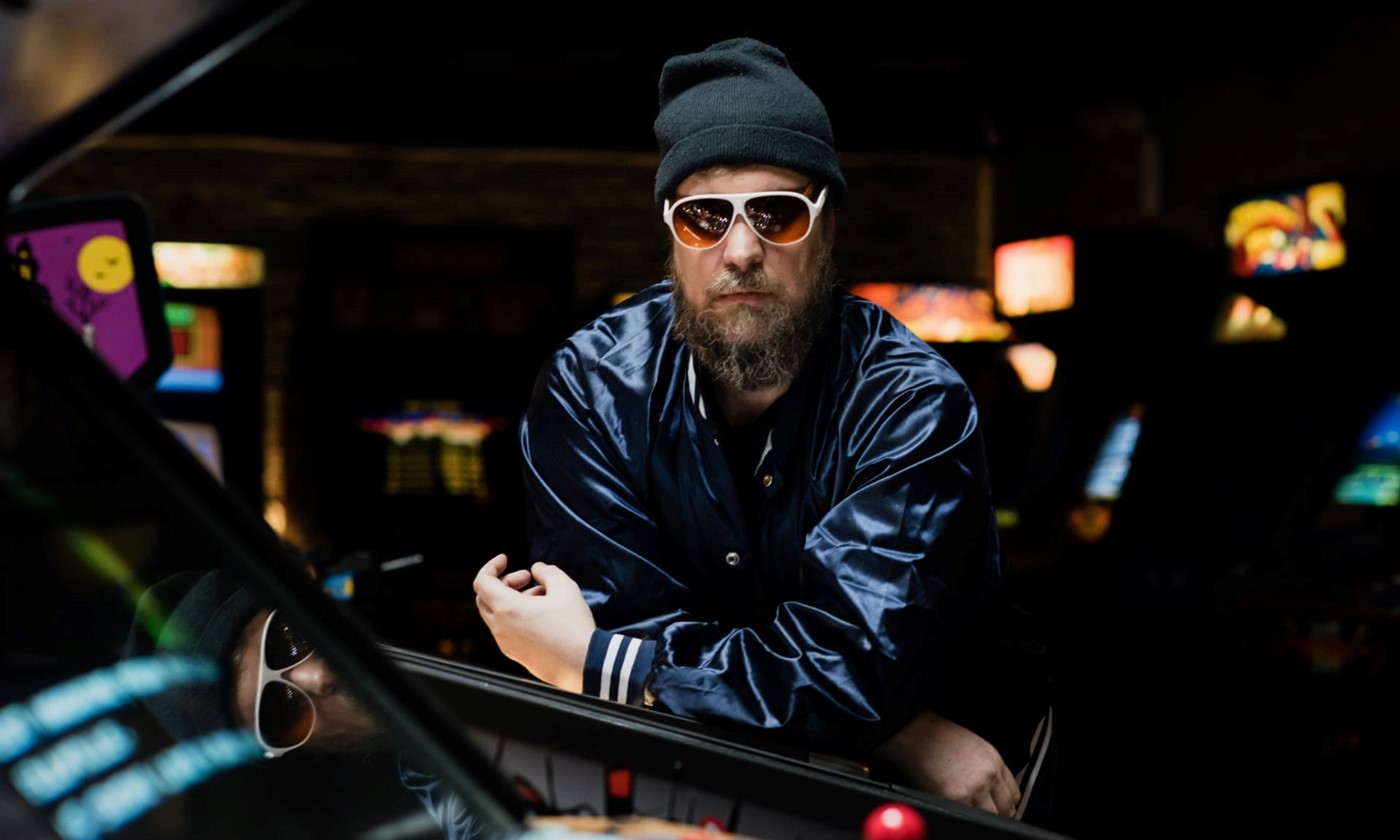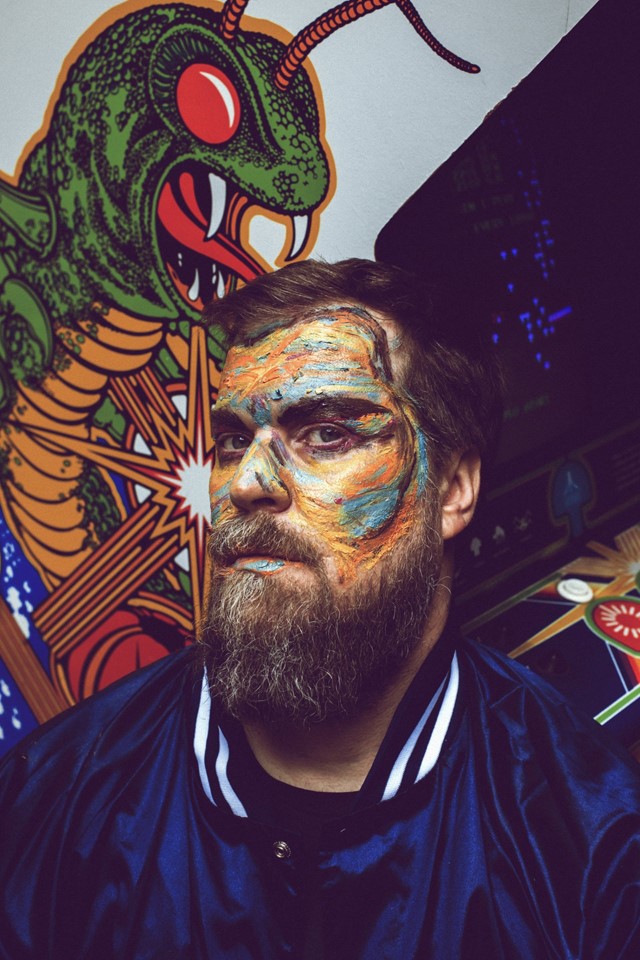Singer-Songwriter John Grant: My Mental Health Journey
- TextTom Connick
On World Mental Health Day and ahead of his new album Love Is Magic, John Grant talks Another Man through his journey towards self-acceptance through a mire of mental illness and addiction
The John Grant of 2018 is a testament to change. Raised by a devout Christian family in a strictly Methodist household, the now flamboyant and deliciously sarcastic singer-songwriter’s history is wracked with conflict and compromise. From denying his own sexuality, to longstanding problems with addiction, anxiety and a wilful lack of self-care, the unlikely star of baroque, left-field pop comes from a background which couldn’t be further removed from his playful output.
The scars of his upbringing still linger, however. When Another Man meets John, he readily admits that he’s having a bad day. Short of temper and stressed out by an ever-mounting schedule, his swear-y side prevails, and he frequently dips into self-deprecation and gloom. Nevertheless, he strives to make us welcome, repeatedly over-explaining and over-apologising for his temperament. Throughout our hour together, he is far more often a warming presence than the burning fire of rage he paints himself as.
Grant’s new album, Love Is Magic is a shining marker of the man he has become. Both laugh-out-loud funny and crushingly bleak, it’s a maximalist document of defiance and actualisation; a pontification on love and sex that never slips into over-sentimentality. It’s also the work of a man who – despite everything – remains one of modern music’s most singularly brilliant voices. Below, John Grant details his half-lifelong experiences with poor mental health, addiction, and how he found the slow but steady road to self-acceptance.

“When I was living in Germany, I started to have really severe problems with anxiety. I was still trying to be a good little church boy, like I was supposed to for my family. But also dealing with my sexuality for the first time, and not being able to deal with it – just shoving everything down. I was just trying to figure out what the right thing was to do, but at the end of the day I wanted to just be myself, and not worry about it so much. That’s what I was fighting towards.
“I just quit going to church, and then things got a lot easier for me, for a time. There was a lot of pressure off. It’s not like everybody at church was telling you, ‘You’re doomed to hell because you’re a homo’, but it was sort of generally accepted that you’d go into some sort of ‘ex-gay’ programme, where you would eventually be healed if you put in the work.
“I don’t know why the anxiety was so bad in Germany – I think things were just coming to a head. I’d gone thousands of miles away from my parents’ house, and I still couldn’t be myself. I was like, ‘Run away, move to Germany, and then I’ll be able to be whatever I want and be myself’. But the prison is inside your head. In 1993, I finished my midterms, and I should’ve gone on to be a translator. But I was sick of Germany, and I was sick of my anxiety. Maybe I was homesick, too. During my six years in Germany, I didn’t really spend much time talking to Americans. I spoke German all the time.
“I was like, ‘Run away, move to Germany, and then I’ll be able to be whatever I want and be myself’. But the prison is inside your head”
“I went back to the States in ’94, and my mother had been diagnosed with cancer. I went to the doctor there, and talked about having this severe depression and anxiety, and he gave me this drug called Paroxetine, which was brand new that year. I’ve been on that ever since. It was never monitored, by anybody, but it really helped me.
“And then I just went whole hog into the gay community there. I was super promiscuous, and I guess just making up for lost time, because I was 26 by that point. But my mother was dying at the same time – while I was sort of… coming to life. It was difficult to process what was going on with my mother, because I knew that she couldn’t accept that part of me.
“She was dying, but it was hard for me to take part in that, because I couldn’t really have real conversations with her. It was a huge disappointment to my parents, who were upset and worried about me, and not pleased with me. It was really, sort of, a nightmare at the time. I began drinking a lot – drinking heavily. Drinking more and more.
“I also had some great sex! But no sex that I’ve ever had has ever made me feel fulfilled as a person. Wanting to be able to have guilt-free sex is all well and good, but that’s not the be-all and end-all either. Figuring out who to have sex with is not gonna save you.
“It was just a fucking shitshow. I was just starting to come to terms with my sexuality, and my mother was dying. I wasn’t really able to process that death – I just went whole hog into the party lifestyle, and drinking… and then later got a taste for cocaine. I was on the wrong path with that. These people who can have two pints of beer and then go home? I was never interested in that – and frankly I’d find it insulting. ‘What the fuck is the use of that? If we’re gonna get fucked up, let’s get fucked up!’ But yeah, good for them – you just have to do what’s good for you. And for me, I was turning into an alcoholic.
“But you also can’t just quit drinking, and not do anything more. I always describe addiction as like this layer of snow – this long winter. And then there’s the spring, and the thaw of getting sober, and waking up… but then there’s nothing but used condoms and dog turds all over the ground, which you have to clean up. And it has to be kept clean. And that’s an ongoing, daily process. I had a lot of rage stored up in me as well, and I’m just trying to figure out how to deal with that right now. But I think as an adult, you have to take responsibility for yourself, and it’s your responsibility to figure out how to thrive.
“I always describe addiction as like this layer of snow – this long winter. And then there’s the spring, and the thaw of getting sober, and waking up…”
“Getting better is about just living in the moment. It’s about context, and living in the moment, and doing the right thing in that moment. People’s hearts are changing – people with gay family members are realising that it doesn’t matter. We’ve gotta look at it on the small scale, and there, things are changing.
“Right now, when you look at things from a wider perspective, it doesn’t look like things are going in the right direction at all. But when you get in close, with a microscope, there are changes taking place. You’ve gotta be awake. You’ve gotta figure out a way to be awake, and looking at things – not shying away from the hard stuff.
“Basically, it just comes down to tools. What we need to be doing is figuring out what our shit is, and figuring out tools for everyday living. We need to be much more flexible, compassionate, and empathetic.”
John Grant’s new album Love Is Magic is out 12th October via Bella Union












